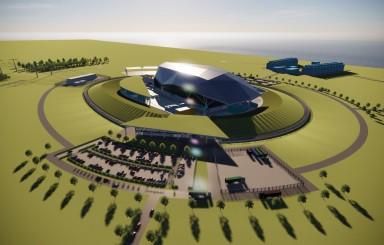CEZ to acquire stake in Rolls-Royce SMR in multi-billion CZK deal
The semi-state energy company ČEZ has announced a strategic partnership with Rolls-Royce SMR to develop modular reactors, marking a significant milestone in the Czech Republic’s energy landscape. As part of the agreement, ČEZ will purchase approximately a 20 percent stake in the British firm for several billion crowns, according to Prime Minister Petr Fiala and representatives from both companies.
The collaboration, which has been in the works for several decades, aims to enable ČEZ to actively participate in the development and global production of new modular reactor technology, rather than merely acquiring pre-made equipment. “This is an important moment to ensure the energy security of the Czech Republic. We have a unique opportunity to not just buy the technology but to be involved in its development and production,” Fiala stated. He emphasized that the partnership would create opportunities for Czech companies to engage in both the development of equipment and supply chains.
The small modular reactors from Rolls-Royce SMR will be pressurized water reactors, incorporating both active and passive safety features. With an expected electrical output of 470 megawatts and a lifespan of at least 60 years, these reactors are seen as a pivotal part of ČEZ’s strategy to build a combined capacity of three gigawatts by 2050. This capacity is in addition to the existing power plants at Dukovany and Temelín, each with a capacity of about two gigawatts.
ČEZ plans to construct these modular reactors primarily for heat supply, targeting sites of existing coal-fired power plants, such as those in Prunéřov and Dětmarovice. According to CEO Daniel Beneš, the price of the modular reactors will be comparable to that of large units, reflecting the lower output of the modular designs. The company is also preparing for the construction of two large reactors, each exceeding 1,000 megawatts, at Dukovany, with one expected to cost around CZK 200 billion based on current prices.
One of the advantages of modular reactors is their potential for mass production in factories, allowing for a more concentrated deployment of units. Nuclear power experts note that while these smaller reactors have lower power outputs compared to traditional nuclear units, they feature faster and simpler construction processes, though their operational characteristics are expected to be similar.
In August, the Czech government signed a safety contract with ČEZ concerning the development of small and medium-sized modular reactors. This agreement aims to safeguard the state’s interests during the selection of future partners for reactor development and construction, ensuring that ČEZ keeps the government informed about contractor selections.
Currently, the Czech Republic operates six nuclear units across two power plants: two units at Temelín in South Bohemia, each with approximately 1,000 megawatts of capacity, and four smaller units at Dukovany in the Třebíč region, each rated at 510 megawatts. Additionally, two more reactors are scheduled for construction at Dukovany by the Korean company KHNP, with the first set to be completed by 2036.
Source: CTK
Photo: Rolls-Royce SMR









